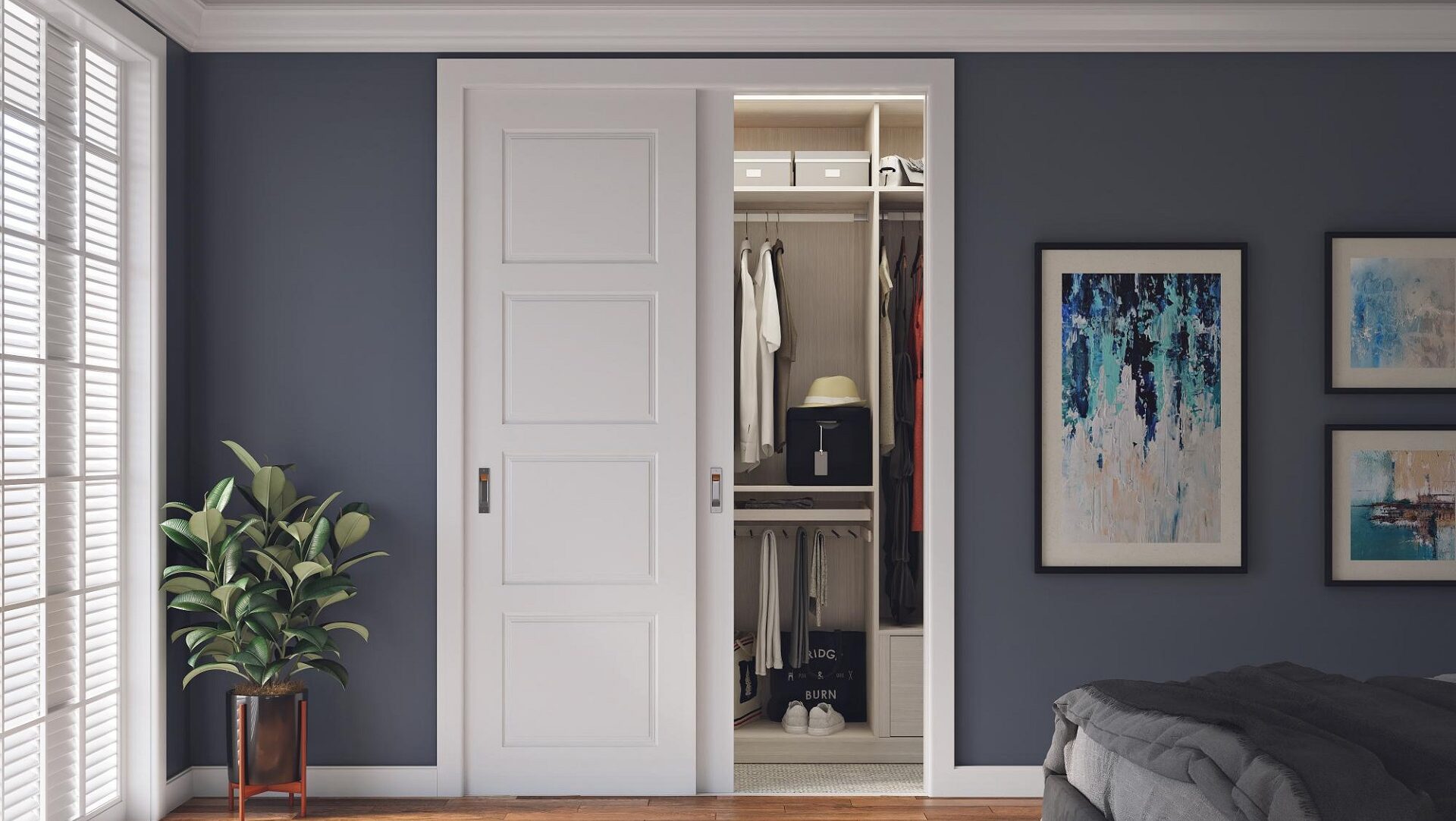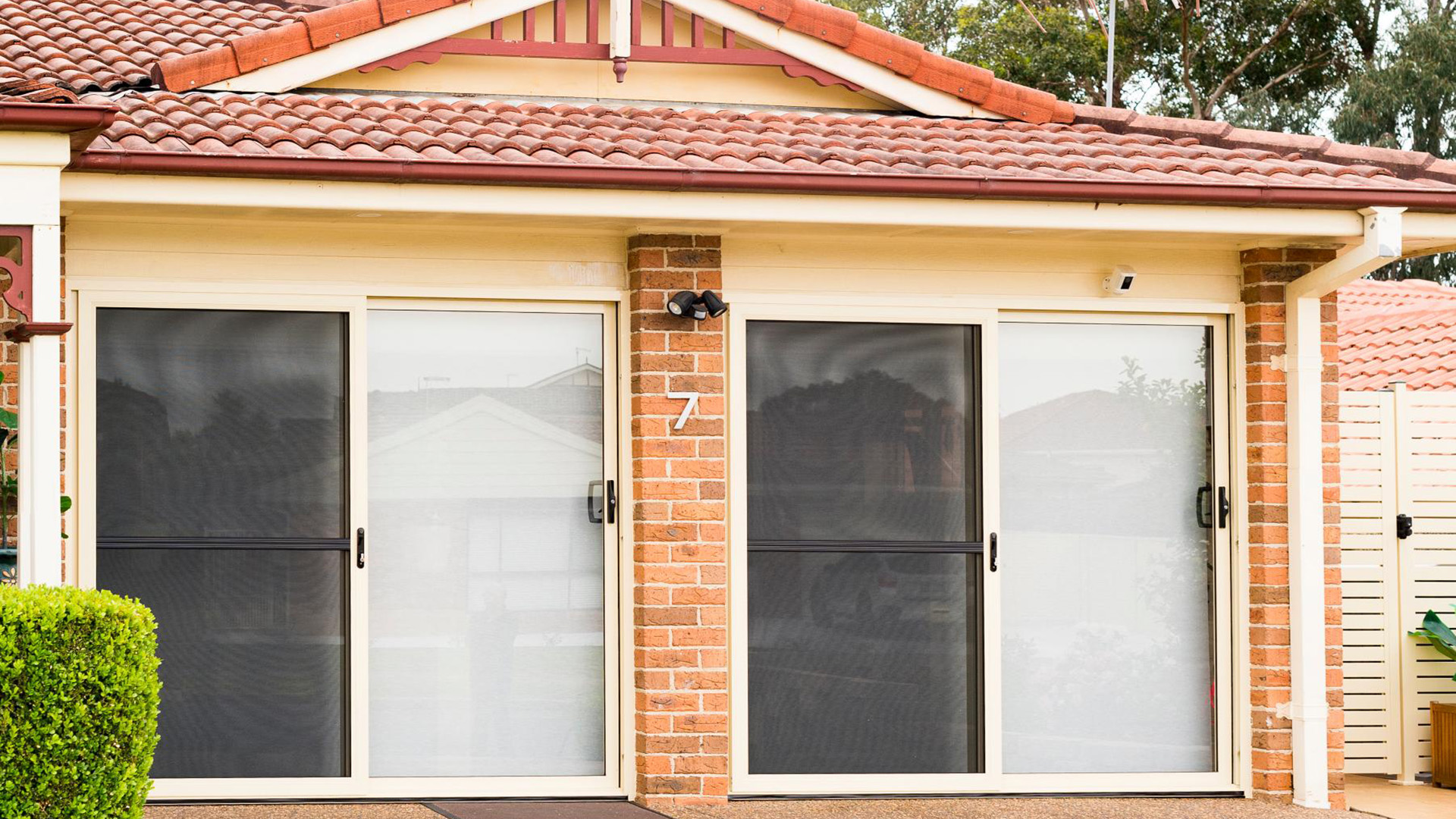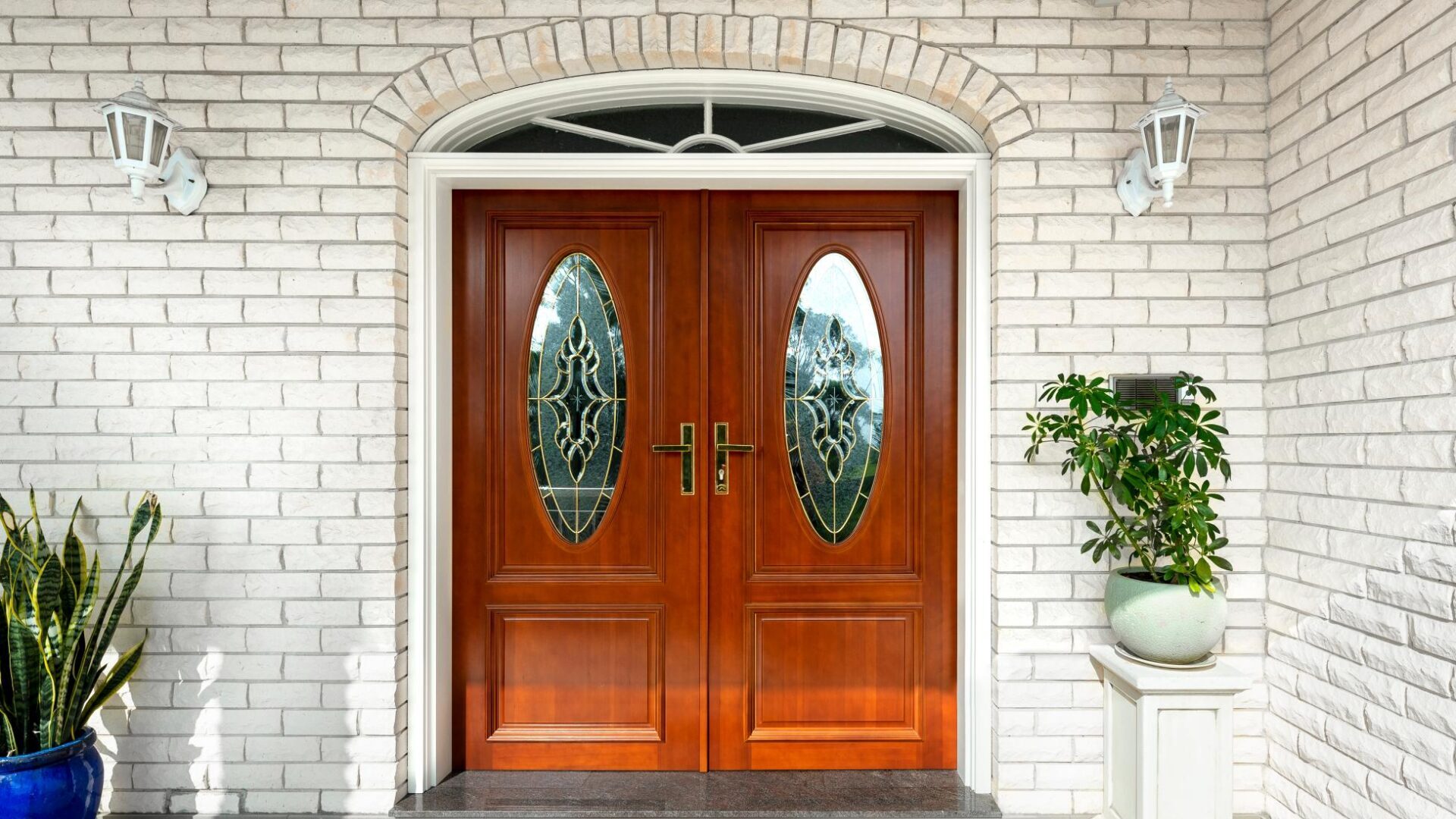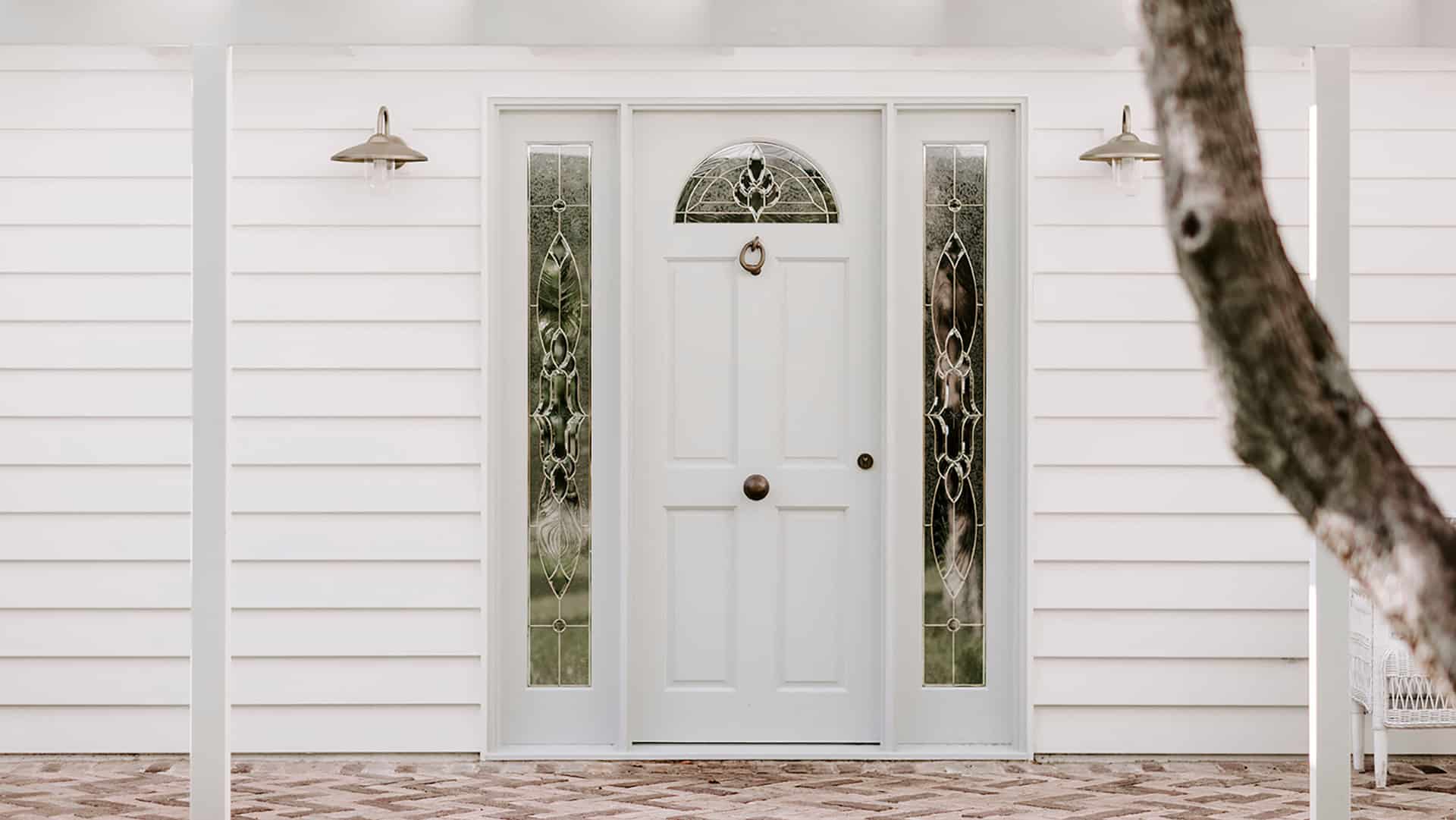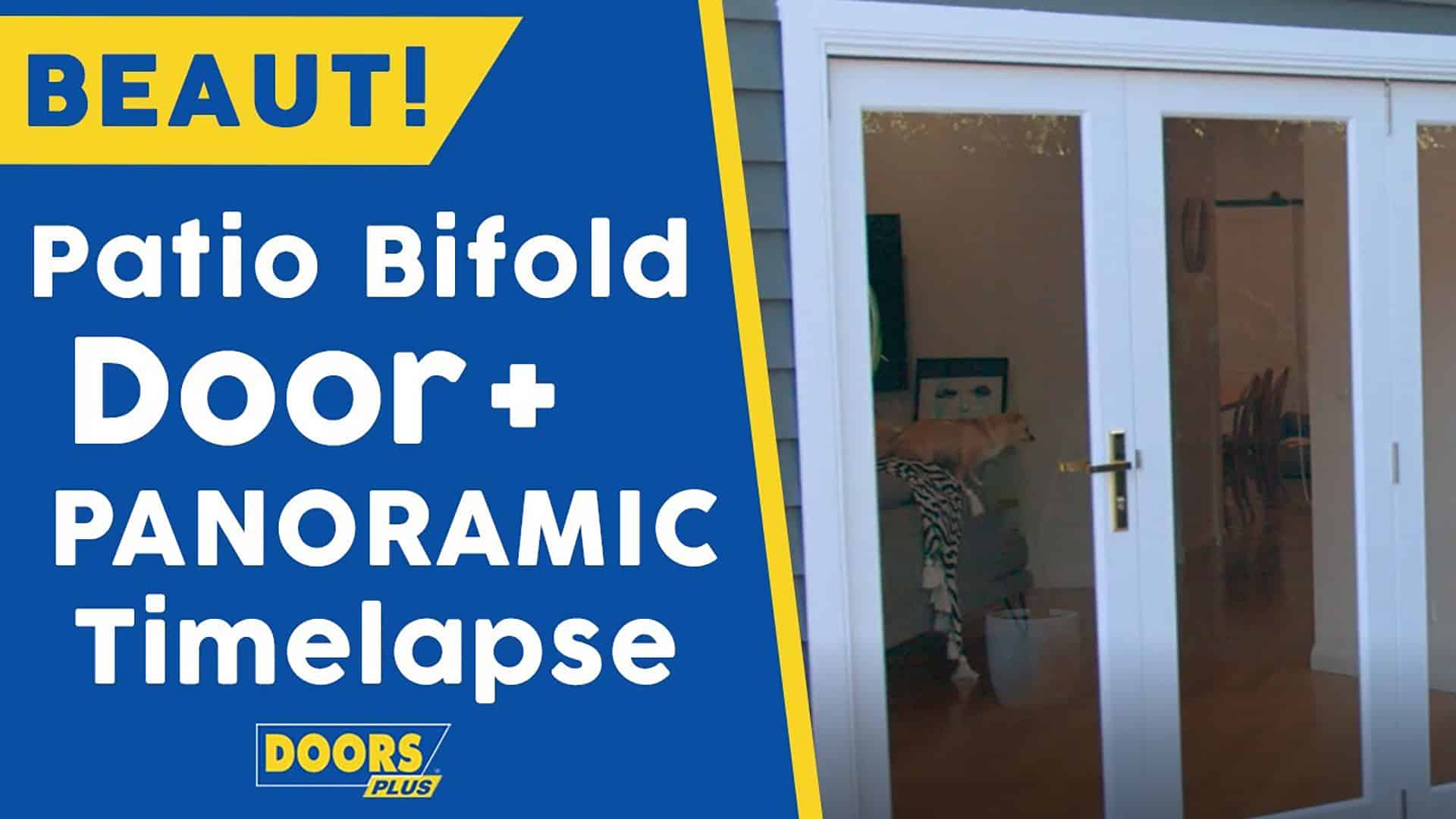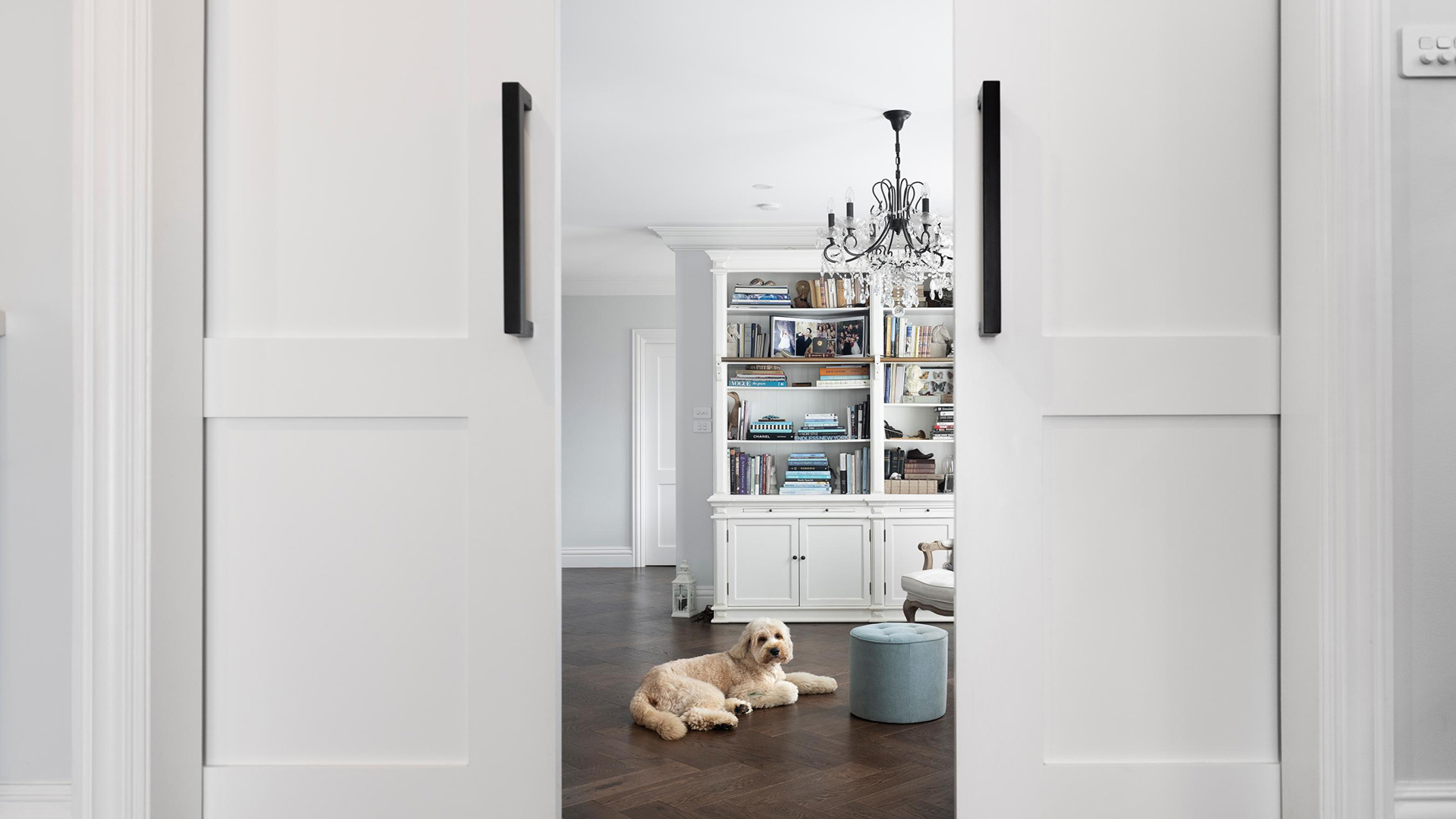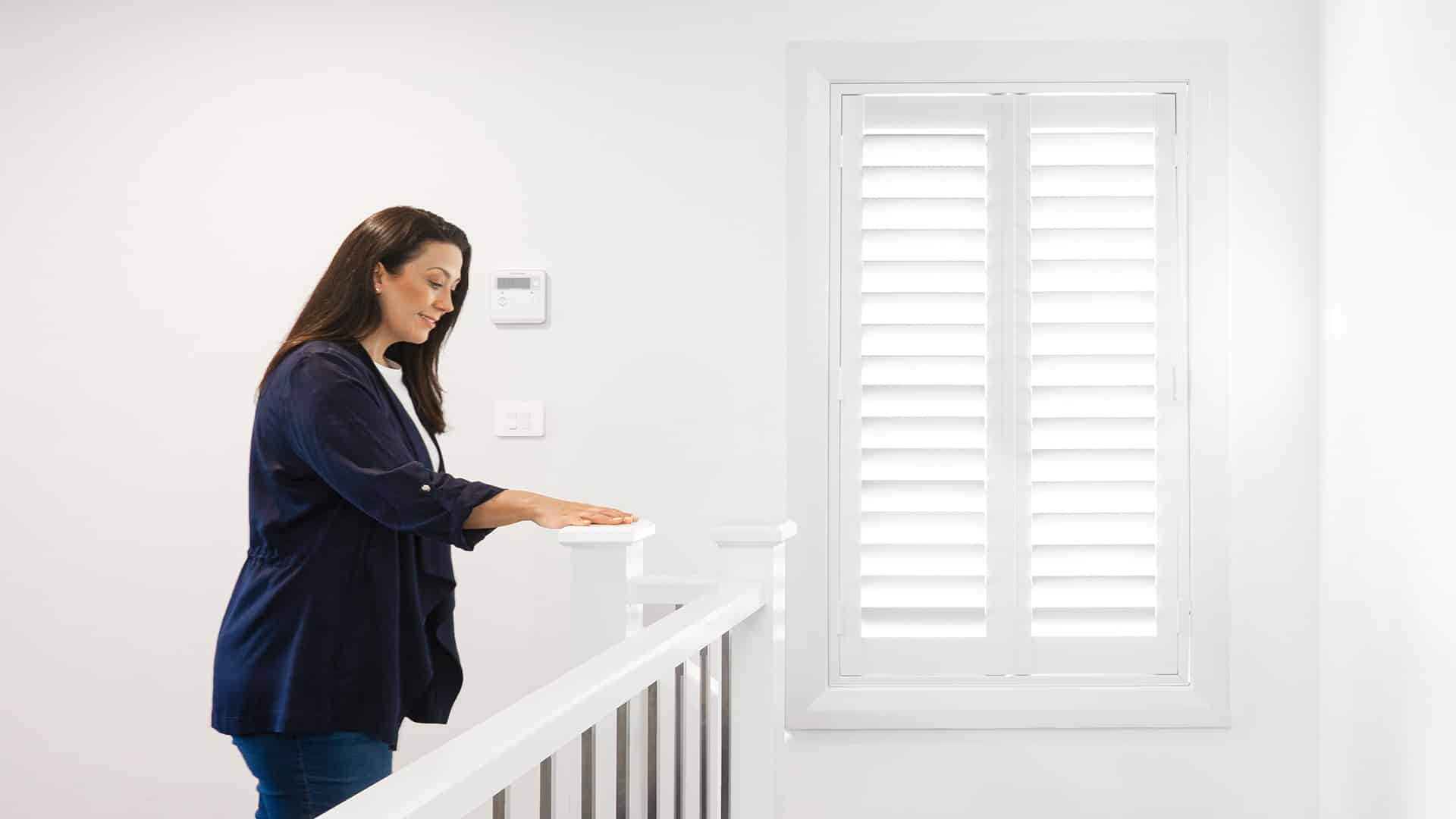What’s The Best Wood for Plantation Shutters? A Simple Guide
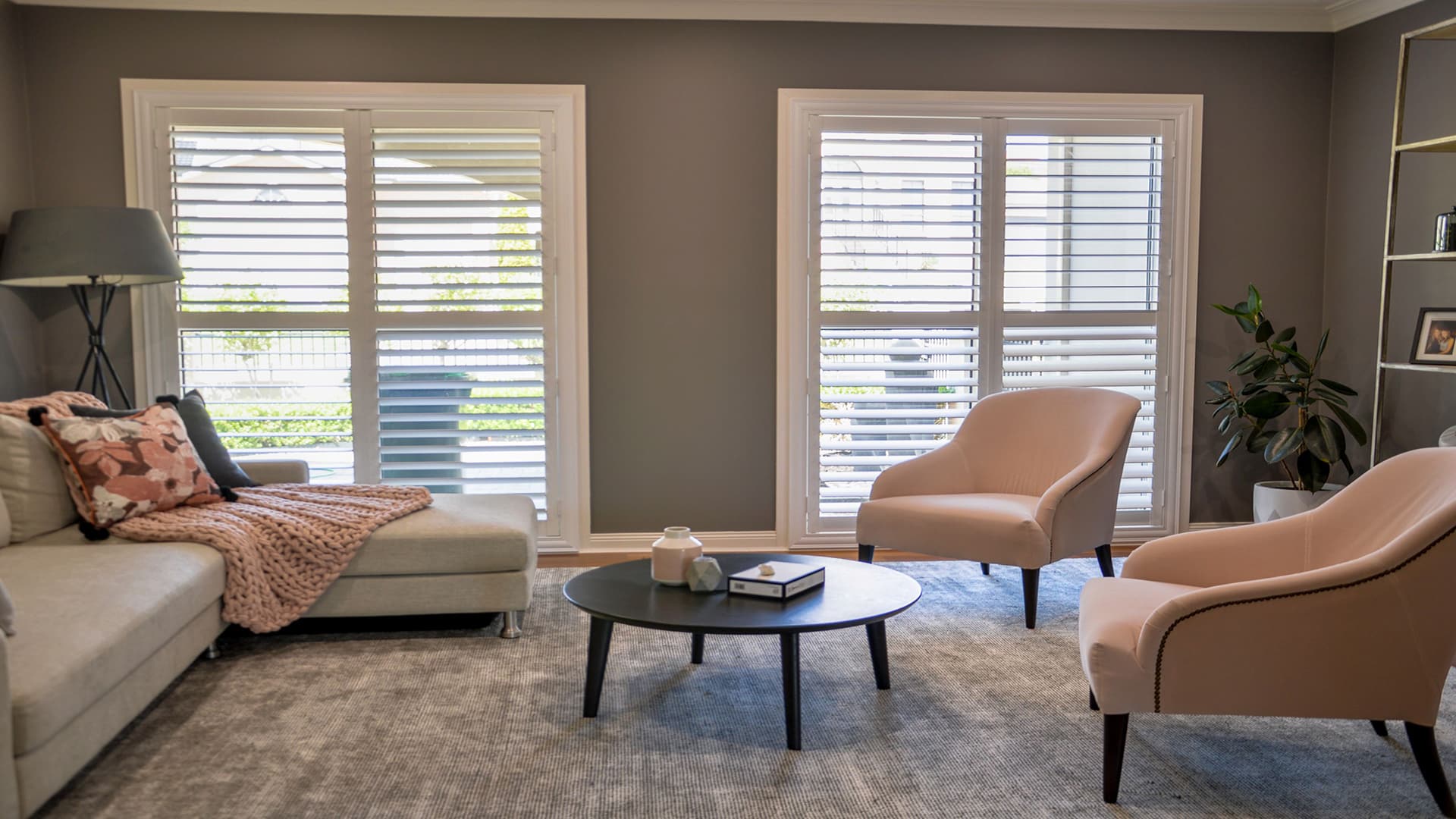
Plantation shutters are an increasingly popular choice among Australian homeowners, thanks to their timeless appeal and contemporary flexibility.
These fitted shutters come in a range of materials, styles and configurations, so it’s important to get to know them before you buy.
Your choice of material will depend on the aesthetic you want to create, as well as factors such as performance, durability, and how easy they are to clean and maintain.
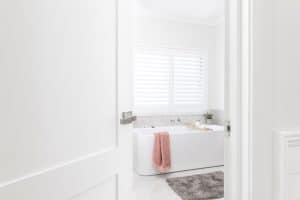
As well as uPVC options, there are several different types of wood that could be used for shutters.
Here, we’ll let you into some of the pros and cons of each, and give you a better idea of what is the best material for plantation shutters in your home.
Should You Choose Wood Plantation Shutters?
Wooden shutters appeal to many homeowners for the natural warmth and unique character of the woodgrain.
They can be stained to create a rich, elegant and traditional effect, or to add drama to a more modern scheme.
A light stain brings out the natural grain while complementing a more chic, airy and contemporary interior.
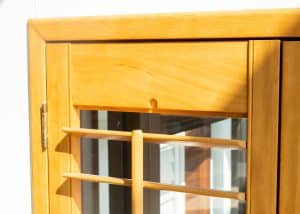
The benefit of a material like uPVC is that it is more resilient than wood, and especially when it comes to high moisture areas such as bathrooms.
uPVC is exceptionally durable and easy to maintain, and is guaranteed not to warp or rot.
This is why Doors Plus uPVC plantation shutters come with a lifetime warranty.
For those who want the aesthetic benefits of wooden shutters, we offer basswood timber shutters because of the quality and longevity of this beautiful hardwood.
There are other woods on the market that offer buyers different styles, performance capabilities and price points, but at Doors Plus we believe basswood to be the best wood for plantation shutters.
What Types of Wood Are Used?
Basswood
Basswood is a beautiful, strong and resilient natural hardwood, making it ideal for plantation shutters around the home.
It is light in colour, so can complement a clean, modern and minimalist scheme, but can also be sanded and stained or painted in the finish of your choice.
These shutters can either blend in seamlessly and look right at home, or stand out as a design feature in their own right.
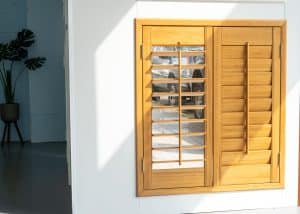
Basswood also has one of the best heat to strength ratios among wood types.
This means it remains stable in the face of extreme temperatures and fluctuations, and performs well to insulate your windows, creating a comfortable home environment.
At Doors Plus, all of our wooden shutters are crafted from basswood timber because we consider this to be the best wood for plantation shutters that are both elegant and practical.
Pros:
- Light colour
- Natural woodgrain
- Can be sanded, stained or painted
- Resistant to heat fluctuations
- Good insulation performance
- Lightweight
- Strong and resilient
Cons:
- Not as well suited to high moisture areas
- More costly than uPVC
Poplar
Poplar is a dense and stable hardwood that can withstand the extremes and fluctuations of the Australian climate.
It’s light in colour and can be painted or stained, but it tends to take several layers to achieve a consistent finish as the wood absorbs the coating so quickly.
A readily accessible and more affordable wood, poplar is often used for furniture and furniture frames, as well as for plywood.
When it comes to the best wood for plantation shutters, poplar perhaps lacks some of the unique character and rich quality of basswood.
Pros:
- Dense and stable hardwood
- Resistant to temperature changes
- Versatile
- A more sustainable timber
Cons:
- Can absorb stains or paint inconsistently
- Not as well suited to high moisture areas
- Not as much character as basswood
- More costly than uPVC
Cedar
A naturally stable wood, cedar is resistant to extreme temperatures and humidity, and is fairly durable.
This makes it less prone to swelling, warping or cracking than some other woods, which is an advantage for window shutters.
Cedar wood has an attractive honey colour and a rustic aesthetic, making it an appealing choice from a style and décor point of view.
Pros:
- Honey colour
- Consistent grain
- Stable and resistant to humidity
Cons:
- Not as much character and individuality as basswood
- More costly than uPVC
Paulownia
Also known as kiri or phoenixwood, paulownia is a very lightweight hardwood.
A large part of its appeal comes from its rich and prominent grain, giving this wood plenty of distinctive character.
Paulownia is one of the strongest types of wood that can be used for shutters, and finishes well when painted or stained.
It is also a more affordable natural material than some others because these trees are so fast-growing.
The coarse texture and straight grain can give paulownia a slightly striped appearance, which may not be to everyone’s taste.
It is perhaps more commonly used for specialty items, such as musical instruments or specific items of furniture, rather than being the best wood for plantation shutters.
Pros:
- Extremely lightweight but strong
- Rich natural grain
- Depth of character
- Good finish when stained or painted
- Durable
- More affordable timber
Cons:
- Can have a striped grain appearance
- More costly than uPVC
FAQs About The Best Wood for Shutters
-
What type of wood is best for shutters?
The best wood for plantation shutters is one that balances visual aesthetics and versatility of style with functionality and performance.
At Doors Plus, we use natural basswood timber because it is lightweight yet strong and resilient, with a light natural colour that can easily be painted or stained to suit any home.
-
How thick should wood be for shutters?
At Doors Plus, our plantation shutters are made to measure, with a standard wood thickness.
The louvre blades are 89mm wide.
Find out more about how to measure for plantation shutters or how much to install plantation shutters.
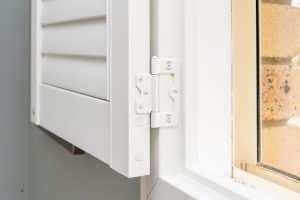
-
What size wood do you use to make shutters?
Our basswood timber plantation shutters come in hinged or bi-fold panels that are made to measure.
Hinged shutters can be 260-830mm and 300-3000mm tall. Bi-fold shutters can be 260-650mm wide by 300-3000mm tall.
For shutters that are taller than 1500mm, a divider rail is added, giving you even more flexibility to control the top and bottom louvres independently.
The louvre slats are 89mm wide.
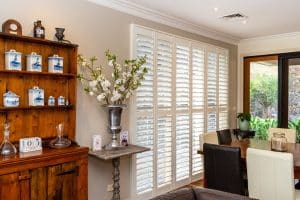
-
Is wood shutters better when compared to uPVC shutters?
Some homeowners prefer wood shutters for their natural character and charm, but the benefit of uPVC shutters is that they are exceptionally durable and resilient, easy to clean and maintain, and they come with a lifetime warranty.
For areas of high moisture or humidity, uPVC shutters are a more suitable choice.
Choose The Best Wood For Your Plantation Shutters
Hopefully you now have all the information you need to decide what is the best material for plantation shutters in your home.
Different types of wood have their own characteristics and benefits, but at Doors Plus we use basswood timber for its balance between aesthetics and performance.

If you would like to find out more about the pros and cons of wood vs. uPVC, or if you have more questions about why we use basswood as the best wood for plantation shutters at Doors Plus, visit your nearest showroom and speak to one of our experts.
We can also give you more information about how much you can expect to pay for plantation shutters.

